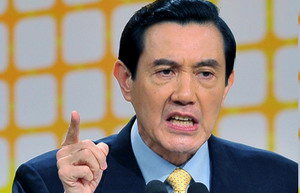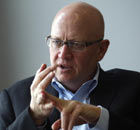-
-
China Daily E-paper
From Overseas Press
China plans to use full power of the media
(chinadaily.com.cn)
Updated: 2010-04-26 11:39
 |
Large Medium Small |
China has started making a multibillion-dollar effort to make its voice heard by the world to match its position as an emerging power, said an article in the Washington Post on April 25.
To correct the world's "routinely mischaracterization and misunderstanding" about their country, Chinese leaders believe that the nation must "spread its point of view on everything from economics to art to counter the influence of the West," said the article.
Accordingly, China plans to "create media giants that will challenge agenda-setting Western behemoths such as Rupert Murdoch's News Corp, the BBC and CNN," to "push its government-run news services like TV news, English-language newspapers, radio stations on all continents expanding from America to Zimbabwe" in multiple languages. Meanwhile, the article said, "the stations don't broadcast outright propaganda, but rather programming with a Chinese focus and flavor, tailored for local audiences."
According to the report, China's official Xinhua News Agency "will soon have more than twice as many bureaus in the US as any Western news agency has in China, and it plans to increase its worldwide footprint to nearly 200." It also started its television news channel in English and Chinese last year.
Another Chinese media giant, China Central Television, "will begin English live financial news coverage from the New York Stock Exchange on April 26," according to the article.
The article quoted Li Changchun, China's party leader responsible for propaganda, as saying, "In the modern age, whichever nation's communication methods are most advanced, whichever nation's communication capacity is strongest... has the most power to influence the world."
The article concluded that China's media strategy, which was publicly stressed by President Hu Jintao, illustrated its idea of considering "soft power" as the "new Holy Grail" to establish its superpower status.









